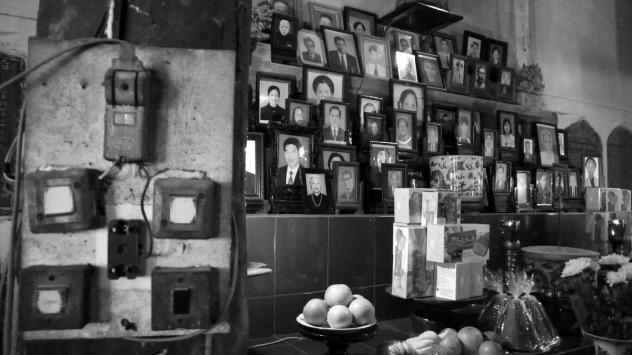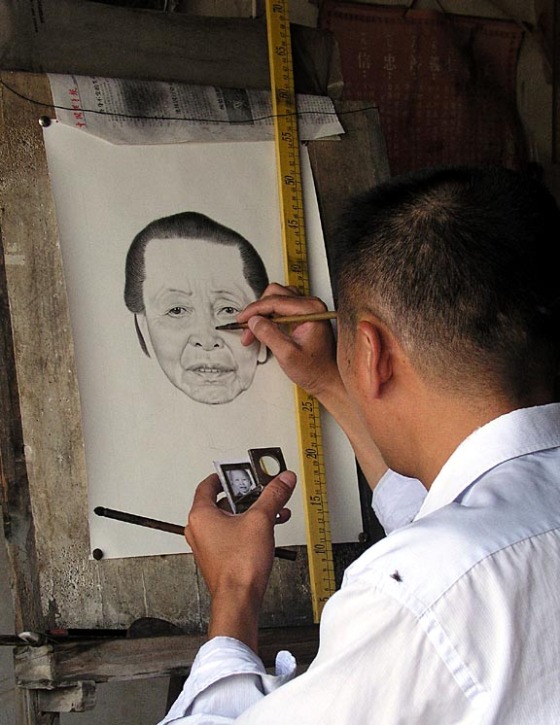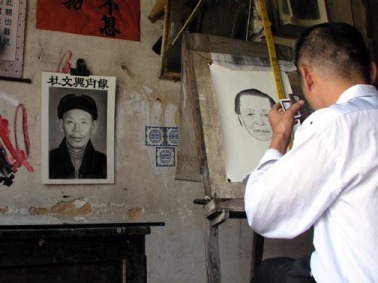Greetings,
The bent nail gets hammered down, yelled a Chinese teacher next door to my classroom.
The Maija artist accepted the photo from the grieving relative set up his easel, using a magnifying glass to see the face, using a pencil to capture the 8x10 likeness. On the chipped plaster walls were examples of his work; peasants, farmers, aunts, uncles, husbands, wives and young and old Pioneer communist members with tight, tight red scarves knotting their necks suffocating their passion.
Today he was sketching an old unsmiling stoic woman. A sad resigned peasant. These were people who had suffered. They’d suffered at the hands of the nationalists then the communists, then the new economic revolutionaries. The indignities of old age.
An old three-string wooden musical instrument hung on the wall near red streaks of paint inside this fine art museum. A black fly on the left shoulder of the artist rubbed its feelers together. Tasty.
An old man with his emaciated skeleton face and paper thin arms carefully opened a bag of tea and poured tight compressed leaves into his bony right hand. He dispersed this into an old chipped blue pot and added water. We shared tea watching the artist work. The artist was good. The likeness was close to perfect. The tea was delicious.
The same kind of images decorate the altars in Vietnam. They sit in various temples around the cities. Death is a big deal. Ancestor worship.
Do all the ancestors hear, understand and acknowledge all the yelling? Yes. Do they open their mouths and request a little peace and quiet? On anniversary death days they meet all the other ancestors inside narrow mazes of alleys where piss, drain water, used cooking oil, daily slop and vicious liquids drain into punctured cement holes flowing along narrow passageways slanted toward the middle where voices become echoes? Yes.
The dead formed a rubber stamp committee to address family noise. ‘It’s come to our attention dear comrades, dear people, dearly beloved family and friends...that we have a communication issue here in the neighborhood.’
‘Silence! We are trying to sleep. The long peaceful and restful sleep. Leave us be.’
Metta.









 Share Article
Share Article 









